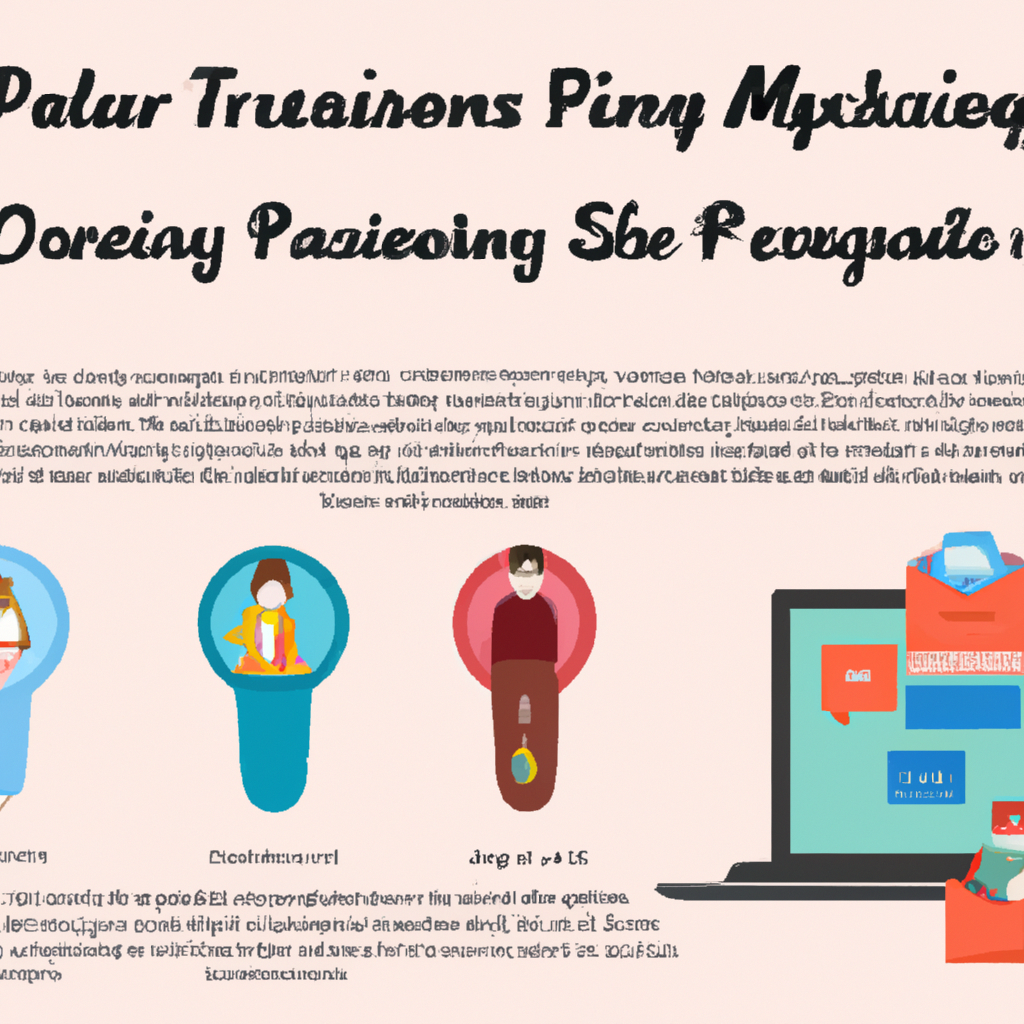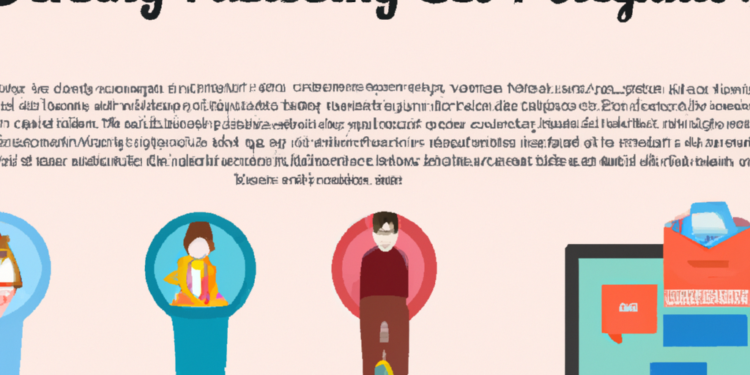Imagine having a marketing strategy tailored specifically to each individual customer, with personalized messages and offers that resonate with their interests and preferences. That’s exactly what marketing personalization aims to achieve. In this article, we will explore what marketing personalization is and how you can implement it in your own business. By understanding the power of personalized marketing, you’ll be able to create meaningful connections with your target audience and drive successful campaigns that yield higher conversion rates and customer loyalty. Get ready to take your marketing efforts to the next level!

Understanding Marketing Personalization
Definition of marketing personalization
Marketing personalization is the practice of tailoring marketing strategies, content, and offers to individual customers based on their preferences, behaviors, and demographics. This approach aims to create a more personalized and relevant experience for customers, ultimately leading to increased customer engagement, loyalty, and conversion rates. Personalization can be applied across various marketing channels such as email marketing, website content, social media campaigns, and targeted advertising.
Importance of marketing personalization
Marketing personalization is crucial in today’s highly competitive business landscape, where customers are constantly bombarded with generic, impersonal marketing messages. By personalizing marketing efforts, businesses can stand out from the crowd and build stronger relationships with their customers. Personalization helps to create a more tailored and meaningful experience for customers, making them feel valued and understood. This, in turn, can lead to higher customer satisfaction, increased brand loyalty, and ultimately, improved business performance.
Benefits of marketing personalization
There are several key benefits of implementing marketing personalization. Firstly, personalization helps to enhance customer engagement by delivering relevant and timely marketing messages that resonate with individual customers. By catering to customers’ unique needs and interests, businesses can capture their attention and encourage active participation.
Secondly, marketing personalization can significantly increase conversion rates. When customers receive personalized offers or recommendations, they are more likely to make a purchase or take the desired action. Personalization can also help businesses upsell or cross-sell products or services based on customers’ past purchases or browsing behavior, driving incremental sales and revenue.
Thirdly, implementing marketing personalization can strengthen brand loyalty. When customers feel understood and appreciated, they are more likely to remain loyal to a brand. By consistently delivering personalized experiences, businesses can build long-lasting relationships with their customers and encourage repeat purchases.
Furthermore, marketing personalization allows businesses to gain valuable insights into customer behavior and preferences. By analyzing customer data, businesses can identify patterns, trends, and customer segments, which can inform future marketing strategies and decision-making.
Implementing Marketing Personalization
Collecting customer data
To effectively personalize marketing efforts, businesses need access to relevant customer data. This can be obtained through various means, such as online surveys, website analytics, customer feedback forms, purchase history, and social media interactions. By collecting both demographic and behavioral data, businesses can gain a comprehensive understanding of their customers’ preferences, interests, and needs.
Segmenting customer data
Once the customer data is collected, businesses must segment it into meaningful groups or segments. Segmentation allows businesses to target specific customer segments with tailored marketing messages and offers. Segments can be based on various criteria, such as demographic information (age, gender, location), purchase behavior, engagement level, or preferences.
Creating personalized content
Once customer segments are identified, businesses can develop personalized content for each segment. This includes tailoring marketing messages, product recommendations, and promotional offers specifically designed to resonate with each customer group. Personalized content should be relevant, timely, and address the specific pain points or desires of the target segment.
Developing personalized offers
Personalized offers are a key component of marketing personalization. By analyzing customer data, businesses can identify opportunities to offer personalized discounts, promotions, or recommendations that are likely to resonate with individual customers. Whether it’s a special birthday discount, a personalized product bundle, or a tailored recommendation based on past purchases, personalized offers can significantly impact customer engagement and conversion rates.
Utilizing automation tools
To streamline and scale marketing personalization efforts, businesses can leverage automation tools. These tools allow for the efficient collection, analysis, and activation of customer data. Marketing automation platforms enable businesses to automate personalized email campaigns, segment customers based on their behavior, and deliver highly targeted content across multiple marketing channels. Automation tools not only save time and resources but also help ensure consistency and accuracy in delivering personalized experiences to customers.
Best Practices for Marketing Personalization
Start with a clear customer profile
Before implementing marketing personalization, it is essential to develop a clear understanding of your target customers. This involves creating detailed customer profiles, including demographic information, preferences, behaviors, and pain points. By having a comprehensive view of your target audience, you can tailor your marketing efforts to resonate with their specific needs and interests.
Use multiple channels for personalization
To maximize the impact of marketing personalization, it is important to utilize multiple marketing channels. This ensures that personalized messages and offers reach customers through their preferred communication channels. Whether it’s email marketing, social media campaigns, personalized website content, or targeted advertising, a multi-channel approach allows businesses to engage with customers at various touchpoints, increasing the likelihood of a positive response.
Leverage real-time data
Real-time data is a powerful asset in marketing personalization. By capturing and analyzing data in real-time, businesses can respond promptly to customer behaviors, preferences, or events. This enables businesses to deliver timely, relevant, and personalized marketing messages or offers to customers, enhancing their overall experience.
Test and optimize
Marketing personalization is an iterative process that requires continuous testing and optimization. Businesses should regularly measure the effectiveness of their personalized marketing efforts, such as conversion rates, engagement metrics, or customer feedback. By analyzing the results, businesses can identify areas for improvement and make data-driven adjustments to their personalization strategies, ensuring continuous optimization and better outcomes.
Respect customer privacy
While personalization is valuable, it is important to respect customer privacy and adhere to data protection regulations. Businesses must obtain explicit consent for collecting and using customer data, clearly communicate how the data will be used, and provide an easy opt-out option. It is crucial to maintain transparency and ensure customer data is securely stored and protected from unauthorized access or misuse.
Challenges and Solutions in Marketing Personalization
Managing large amounts of data
One of the main challenges in marketing personalization is managing and analyzing large volumes of customer data. Gathering and organizing data from various sources can be complex and time-consuming. To overcome this challenge, businesses can leverage data management platforms or customer relationship management (CRM) systems to centralize and streamline data collection and analysis. These tools can help businesses effectively organize and segment customer data, making it easier to implement personalized marketing strategies.
Balancing personalization and privacy
Finding the right balance between personalization and privacy can be a challenge. Customers are becoming increasingly concerned about data privacy and may be hesitant to share personal information. To address this challenge, businesses should focus on building trust and providing value to customers. By clearly communicating the benefits of personalization and respecting customer privacy preferences, businesses can create a win-win situation that encourages customers to willingly share their data.
Maintaining consistency across channels
Delivering a consistent and cohesive personalized experience across multiple marketing channels can be challenging. Customers expect a seamless transition between channels and personalized interactions that reflect their previous interactions. To address this challenge, businesses must ensure data integration and synchronization across different systems and platforms. This allows businesses to deliver a consistent experience, regardless of the channel through which the customer engages.
Keeping up with technology advancements
Technology advancements in marketing personalization are happening rapidly, and it can be challenging for businesses to keep up. To address this challenge, businesses should focus on continuous learning and staying updated with industry trends and innovations. Collaborating with technology partners or investing in automation tools can help businesses leverage the latest advancements in personalization, ensuring they stay competitive and deliver exceptional customer experiences.

Case Studies
Example 1: Personalization in the e-commerce industry
In the e-commerce industry, personalization plays a crucial role in driving customer engagement and conversion rates. One successful example is Amazon’s recommendation engine, which analyzes customer browsing and purchase history to deliver highly personalized product recommendations. By tailoring the shopping experience to individual customers’ preferences, Amazon has significantly increased customer satisfaction and sales.
Example 2: Personalization in the travel industry
The travel industry has also embraced marketing personalization to enhance the customer experience. For instance, hotels and airlines often use customer data to offer personalized package deals or promotions based on customers’ travel history, preferences, and loyalty status. This level of personalization not only increases customer loyalty but also encourages repeat bookings and referrals.
Example 3: Personalization in the healthcare industry
In the healthcare industry, personalization is being used to improve patient engagement and outcomes. Health apps and wearable devices collect real-time health data, allowing healthcare providers to deliver personalized health recommendations and reminders to patients. By tailoring healthcare services to individual patient needs, providers can improve adherence to treatment plans and empower patients to take control of their health.
In conclusion, marketing personalization is a powerful strategy for businesses to create meaningful and personalized experiences for their customers. By understanding the definition, importance, and benefits of marketing personalization, businesses can implement effective personalization strategies. By collecting and segmenting customer data, creating personalized content and offers, utilizing automation tools, and following best practices, businesses can successfully personalize their marketing efforts. Despite the challenges of managing data, balancing privacy, maintaining consistency, and keeping up with technology advancements, businesses can overcome these obstacles and achieve the desired outcomes. Through case studies from various industries, it is evident that marketing personalization can drive customer engagement, loyalty, and business growth. Therefore, businesses should embrace marketing personalization as a fundamental strategy in today’s competitive market to stand out and meet customers’ evolving expectations.











